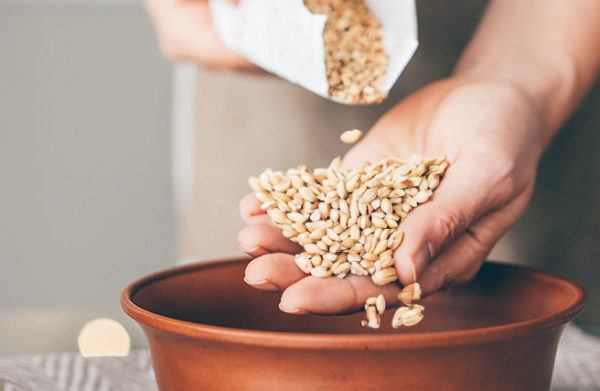
SHA Magazine Healthy Nutrition
What’s the perfect breakfast?
What should we have as a perfect breakfast? We give you the keys: it must be healthy, contain a good energy contribution to face the day ahead and provide a clear mind to assume the new challenges and demands of the day.
To this end, Dr Maria Romeralo, expert nutritionist at SHA Wellness Clinic, proposes the following perfect breakfast model:
- Start with delicious miso soup.
- Continue with a porridge of rice or oatmeal (complex carbohydrates).
- Accompany with a kukicha tea.
- And for those who want extra protein, have hummus or energy bars from sunflower or pumpkin seeds, almonds or nuts.
What are the benefits of a good breakfast for our body?
For many, breakfast is the vital meal of the day. “Starting the day with a good supply of nutrients is basic to having energy all morning and not pecking during the day” explains Dr Maria Romeralo.
Miso soup is a stellar dish in traditional Oriental cuisine. It will provide us with a great amount of proteins, vitamins, minerals and enzymes for the new day. And you can make it even richer by adding wakame seaweed, onions, tofu, carrots or pumpkin. Oh, and it keeps your skin young and helps reduce wrinkles.
“It’s a wonderful way to cleanse the body while providing quality nutrients. Miso is a fermented food and therefore a source of probiotics that help us strengthen our immune system, which is fundamental these days“, explains the specialist at SHA Wellness Clinic.
And why include rice or oatmeal porridge? Dr Maria Romeralo answers: “It will give us energy and mental clarity because it regulates our blood glucose levels.”
This is a fundamental aspect of health. High blood sugar occurs when your body can’t efficiently transport the sugar from the blood into the cells. It is very important to monitor and control it because if it is not done, it can lead to diabetes.
The latest statistics warn that in Western societies there could be as much as 50% of the population with diabetes or pre-diabetes. Many of them are undiagnosed.
And what about kukicha tea… Just one fact: it contains up to 13 times more calcium than a glass of milk. And you don’t have to limit it to breakfast. Since it has less than 1% caffeine, you can drink it at any time without it negatively affecting your rest.
What are the effects of not eating breakfast or eating unhealthy foods on the body?
We have already noticed that breakfast is a fundamental meal of the day. Not only because it should give you the energy to face the day with guarantees, but also because it should produce a valuable sensation of satiety and fullness.
One of the most frequent symptoms of a bad breakfast is hypoglycemia. “If I start the day with a coffee with sugar and a piece of industrial pastry, I will instantly feel good, full of energy and wanting to do things, but after a while, my energy will drop and my body will ask for more sweetness. That’s why it’s so important to avoid simple sugars (refined sugar, artificial sweeteners, honey) at breakfast,” stresses Dr Maria Romeralo.
Some effects of hypoglycemia that can manifest themselves during the day are irregular heart rhythm, fatigue, pallor, anxiety, sweating, hunger or irritability.
Is it advisable to eat sweet at breakfast?
“The sweetness of breakfast should be provided by whole grains. And, at most, if we want to sweeten it, it should be with rice molasses. And we should always avoid refined cereals and simple sugars that cause hypoglycemia“, says the specialist at SHA Wellness Clinic.
It is essential not to accustom the body to glucose that it does not need. And remember: sugar is addictive. Once you get into the spiral, you can’t get it out of your head.
Pay attention to the whole “ceremony” at breakfast. Enjoy it and take your time. That includes good chewing. Or learning how to do it, if you don’t know.
“This will make us eat the necessary amount and avoid excesses as well as help the digestive process because saliva is full of digestive enzymes,” remembers Dr. Maria Romeralo.
Chewing well is quite a deal. A Japanese study from Osaka University, published by the British Medical Journal, confirmed that people who eat fast and chew little are three times more likely to suffer from obesity.





